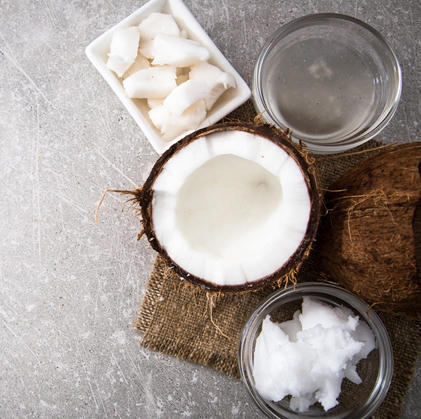
Monolaurin
Scientific names: Monolaurin
Alternative names: Distilled Monoglyceride, Glycerin Monolaurate, Glycerol Monolaurate, Glycerol 1-monolaurate, Lauricidin, Lauric Acid Monoglyceride, 1-Lauroyl-rac-glycerol, Monoglycéride Distillé, Monolaurine
Background
Monolaurin is a chemical made from lauric acid, which is found in coconut oil and human breast milk.
Monolaurin is used for the common cold, flu (influenza), shingles (herpes zoster), and other infections, but there is no good scientific evidence to support its use.
In foods, monolaurin is used in the production of ice cream, margarine, and spaghetti.
In manufacturing, monolaurin is used in making cosmetics, detergents, and insecticides.
Monolaurin is used for the common cold, flu (influenza), shingles (herpes zoster), and other infections, but there is no good scientific evidence to support its use.
In foods, monolaurin is used in the production of ice cream, margarine, and spaghetti.
In manufacturing, monolaurin is used in making cosmetics, detergents, and insecticides.
Safety Safety definitions
When taken by mouth: Monolaurin is LIKELY SAFE for most people when used in amounts commonly found in foods. There isn't enough reliable information to know if monolaurin is safe when used in medicinal amounts.
When applied to the vagina: There isn't enough reliable information to know if monolaurin is safe when applied as a gel in the vagina.
When applied to the vagina: There isn't enough reliable information to know if monolaurin is safe when applied as a gel in the vagina.
Special Precautions & Warnings:
Pregnancy and breast-feeding: Monolaurin is LIKELY SAFE when consumed in the amounts found in foods. There isn't enough reliable information to know if monolaurin is safe to use in medicinal amounts when pregnant or breast-feeding. Stay on the safe side and stick to food amounts..Effectiveness
NatMed Pro rates effectiveness based on scientific evidence according to the following scale: Effective, Likely Effective, Possibly Effective, Possibly Ineffective, Likely Ineffective, Ineffective, and Insufficient Evidence to Rate.
Insufficient evidence Effectiveness definitions
- Overgrowth of bacteria in the vagina.
- Chronic fatigue syndrome (CFS).
- Common cold.
- Flu (influenza).
- Shingles (herpes zoster).
- Strengthening the immune system.
- Other conditions.
Dosing & administration
The appropriate dose of monolaurin depends on several factors such as the user's age, health, and several other conditions. At this time there is not enough scientific information to determine an appropriate range of doses for monolaurin. Keep in mind that natural products are not always necessarily safe and dosages can be important. Be sure to follow relevant directions on product labels and consult your pharmacist or physician or other healthcare professional before using.
Interactions with pharmaceuticals
It is not known if Monolaurin interacts with any medicines. Before taking Monolaurin, talk with your healthcare professional if you take any medications.
Interactions with herbs & supplements
There are no known interactions with herbs and supplements.
Interactions with foods
There are no known interactions with foods.
Action
Early research suggests monolaurin can prevent the growth of some bacteria in test tubes.
vital.ly has licensed monographs from TRC Healthcare.
This monograph was last reviewed on 03/10/2024 10:00:00 and last updated on 23/09/2020 19:23:20. Monographs are reviewed and/or updated multiple times per month and at least once per year.
Natural Medicines disclaims any responsibility related to medical consequences of using any medical product. Effort is made to ensure that the information contained in this monograph is accurate at the time it was published. Consumers and medical professionals who consult this monograph are cautioned that any medical or product related decision is the sole responsibility of the consumer and/or the health care professional. A legal License Agreement sets limitations on downloading, storing, or printing content from this Database. No reproduction of this monograph or any content from this Database is permitted without written permission from the publisher. It is unlawful to download, store, or distribute content from this site.


